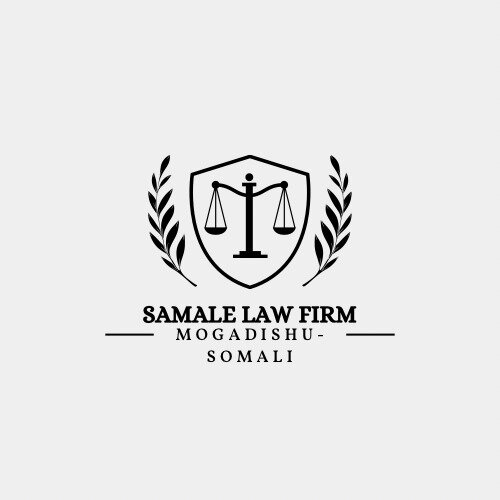Best Labor Law Lawyers in Somalia
Share your needs with us, get contacted by law firms.
Free. Takes 2 min.
Or refine your search by selecting a city:
List of the best lawyers in Somalia
About Labor Law in Somalia
Labor Law in Somalia is designed to regulate the relationship between employers and employees, ensuring fair treatment, safe working conditions, and resolving disputes within the workplace. The legal framework is established to protect workers' rights while balancing employers' interests. This field of law covers various aspects including employment contracts, wages, work hours, occupational safety, and the resolution of labor disputes.
Why You May Need a Lawyer
Seeking legal assistance in labor law could become necessary in several situations. Common scenarios include when facing unfair dismissal, disputes over wages or contracts, harassment or discrimination in the workplace, and questions about working conditions or safety standards. Employers may also require legal help when drafting employment contracts, navigating labor disputes, or understanding their obligations under the law.
Local Laws Overview
Key aspects of local laws relevant to Labor Law in Somalia involve labor rights and obligations as outlined in the Somali Labor Code. Some essential points include:
- Employee rights to fair wages and the right to a safe and healthy working environment.
- Regulations on working hours, overtime, and rest periods, ensuring workers are not over-burdened.
- Requirements for drafting employment contracts, highlighting both the rights and responsibilities of each party.
- Provisions against discrimination and harassment within the workplace.
- Mechanisms for dispute resolution, often involving labor tribunals or mediation efforts.
Frequently Asked Questions
What is the minimum wage in Somalia?
Currently, Somalia does not have a nationwide legally mandated minimum wage, but wages are often negotiated through collective bargaining agreements or set by individual contracts.
How many hours constitute a standard workweek in Somalia?
The standard workweek is generally 40 hours, with a maximum of eight hours per day, excluding breaks and rest periods.
What are an employee's rights upon termination?
Employees are entitled to notice or compensation in lieu of notice, depending on the terms of their employment contract and the circumstances surrounding the termination.
Can an employee be dismissed without cause?
No, dismissals typically need to be justifiable under labor law statutes, such as poor performance, misconduct, or redundancy.
How are labor disputes resolved?
Labor disputes can be resolved through mediation, arbitration, or by referring the case to a labor tribunal or court.
Are there specific protections for women at work?
Yes, the labor law includes provisions to prevent discrimination against women and ensure maternity leave and protection during pregnancy.
What constitutes workplace harassment under Somali law?
Workplace harassment includes any conduct that is abusive, unwelcome, and negatively affects an employee's work environment or employment terms.
How can I report a labor law violation?
Violations can be reported to the Ministry of Labor and Social Affairs or relevant local labor offices.
Is collective bargaining allowed in Somalia?
Yes, workers have the right to form unions and engage in collective bargaining to negotiate employment terms.
Do employees have a right to strike?
Employees have a right to strike, given that it is conducted lawfully and follows the necessary legal procedures.
Additional Resources
For additional support, consider reaching out to the following:
- The Somalia Ministry of Labor and Social Affairs, which provides guidelines and support regarding labor law regulations.
- Local labor offices offering guidance and dispute resolution services.
- Non-governmental organizations focused on labor rights, such as workers' unions and legal aid organizations.
Next Steps
If you need legal assistance in labor law, consider the following steps:
- Consult with a legal professional: Seek a lawyer specialized in labor law to discuss your situation and understand your rights.
- Gather documentation: Collect any relevant documents, such as employment contracts, correspondence, and evidence of disputes or violations.
- Contact the Ministry of Labor: Reach out to governmental bodies that can offer advice or mediate your case if necessary.
- Explore alternative dispute resolution: Consider mediation or arbitration as less formal ways to resolve disputes before pursuing legal action.
Lawzana helps you find the best lawyers and law firms in Somalia through a curated and pre-screened list of qualified legal professionals. Our platform offers rankings and detailed profiles of attorneys and law firms, allowing you to compare based on practice areas, including Labor Law, experience, and client feedback.
Each profile includes a description of the firm's areas of practice, client reviews, team members and partners, year of establishment, spoken languages, office locations, contact information, social media presence, and any published articles or resources. Most firms on our platform speak English and are experienced in both local and international legal matters.
Get a quote from top-rated law firms in Somalia — quickly, securely, and without unnecessary hassle.
Disclaimer:
The information provided on this page is for general informational purposes only and does not constitute legal advice. While we strive to ensure the accuracy and relevance of the content, legal information may change over time, and interpretations of the law can vary. You should always consult with a qualified legal professional for advice specific to your situation.
We disclaim all liability for actions taken or not taken based on the content of this page. If you believe any information is incorrect or outdated, please contact us, and we will review and update it where appropriate.
Browse labor law law firms by city in Somalia
Refine your search by selecting a city.









